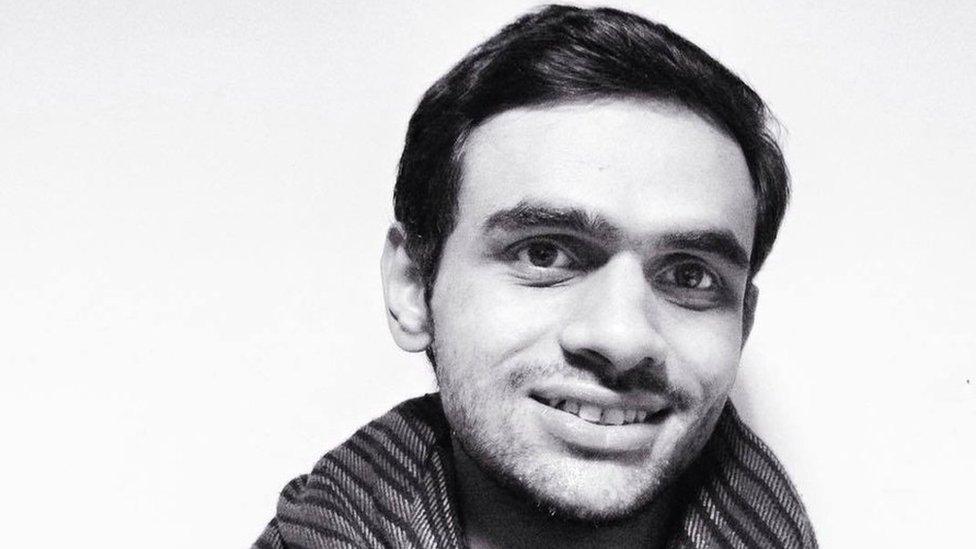Kanhaiya Kumar: 'Sedition' student returns to JNU with fiery speech
- Published
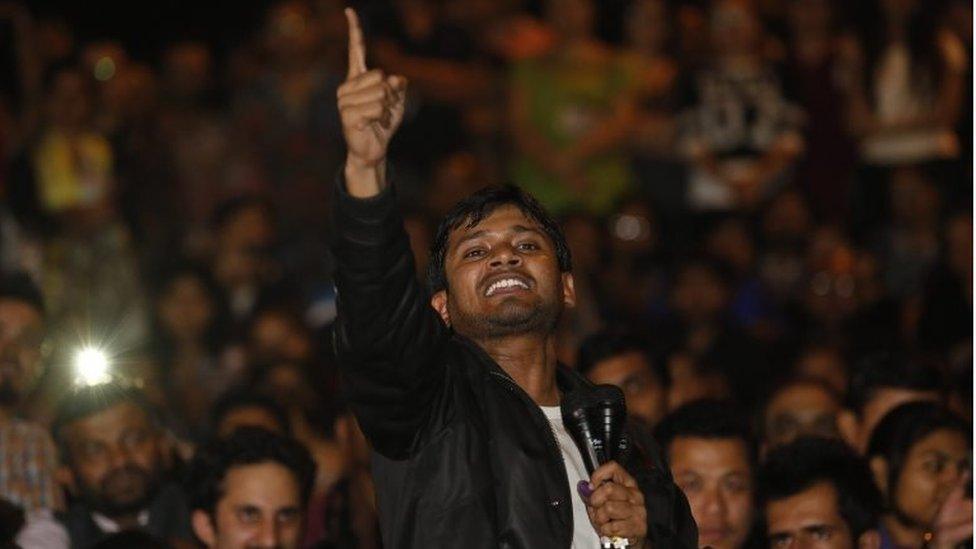
A student leader from a top university charged with "sedition" returned to his campus on Thursday, and made a fiery speech that has gone viral in India.
Kanhaiya Kumar was arrested last month after a rally against the execution of a Kashmiri separatist convicted over the 2001 Indian parliament attack.
He was released from jail on Thursday after being granted bail.
Mr Kumar's views have been divisive in India with some calling him "anti-nationalist".
The authorities allege Mr Kumar and others shouted anti-India slogans at the 9 February rally that took place at Jawaharlal Nehru University (JNU). Two other students remain in custody.
On Thursday, Mr Kumar returned to JNU and said in his speech that he wanted freedom "in" and not "from" India.
Media reports said that close to 3,000 students turned up to hear him speak.
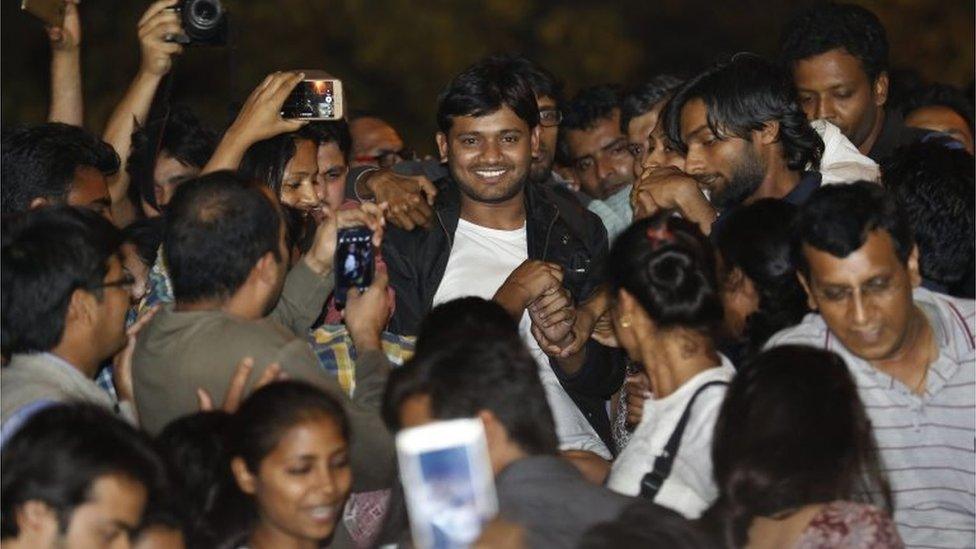
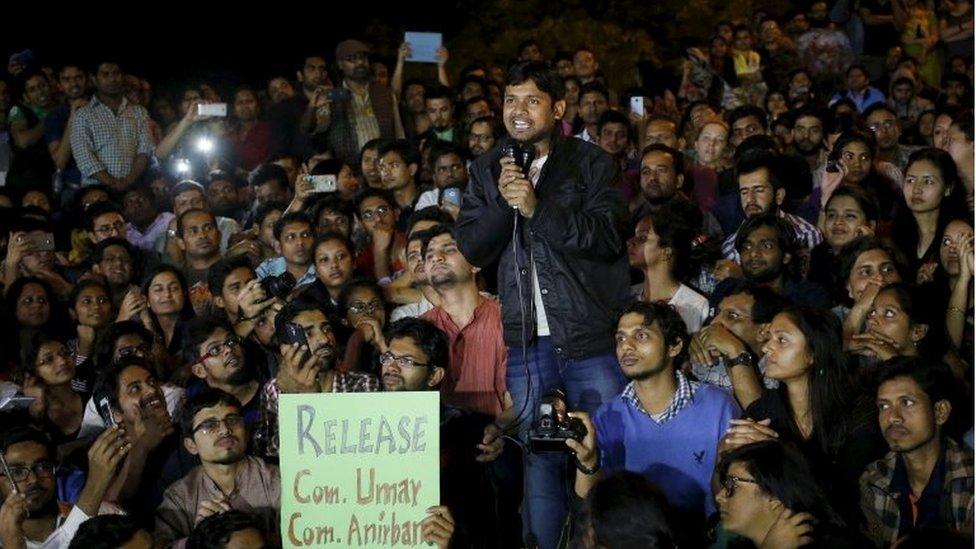
Mr Kumar took on Prime Minister Narendra Modi and the Indian government, saying that the backlash against him was to distract the people from its failings in other areas.
He vowed to continue the "fight" against the "oppressive" policies of the government, saying that the more students were suppressed, the more they would stand up.
The government has not yet commented on the speech, which has sparked a huge reaction online.
#KanhaiyaKumar was trending on Facebook India, Twitter India and Twitter global trends on Thursday night, as television channels beamed his speech live.
On Friday morning, the hashtag #Azaadi (freedom) was also trending in the country, though sentiments remained sharply divided.
YouTube links, external to his speech are also being widely circulated on social media.
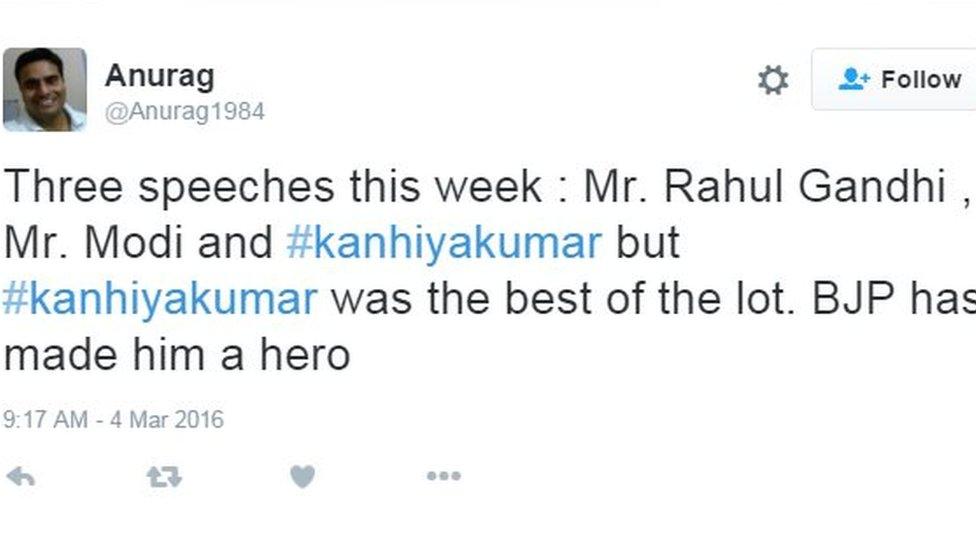
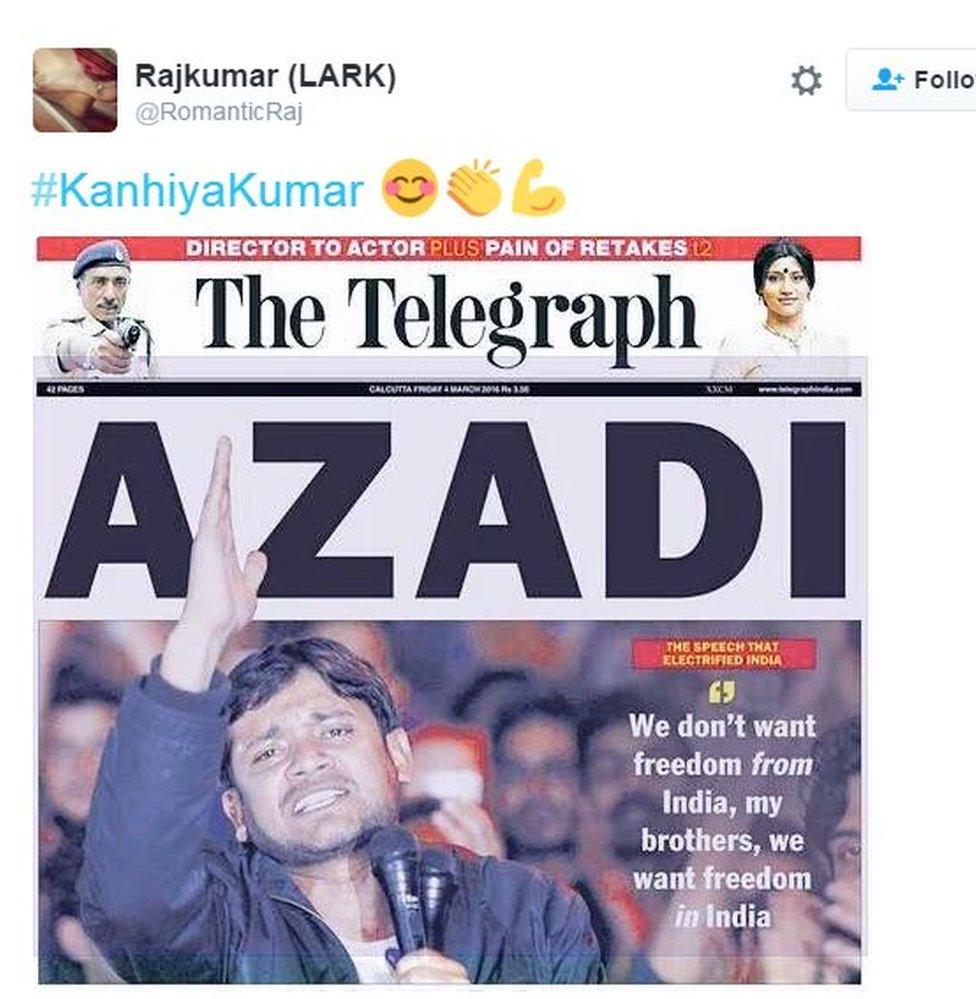
Critics condemned the charges against the students as an assault on freedom of expression, but government ministers have refused to back down, vowing to punish what they describe as "anti-national elements".
The 9 February rally that prompted the arrests was to mark the third anniversary of the 2013 hanging of Mohammed Afzal Guru.
Guru was one of those convicted of plotting the 2001 parliament attack - charges he always denied. The attack, which left 14 people dead, was blamed on Pakistan-based militants fighting Indian rule in Kashmir.
Indian opposition parties see the affair as an attempt by the BJP to push its Hindu nationalist agenda, correspondents say.
There have also been counter protests by those who say JNU is a hotbed of "traitors" and should be "cleaned up".
- Published3 March 2016
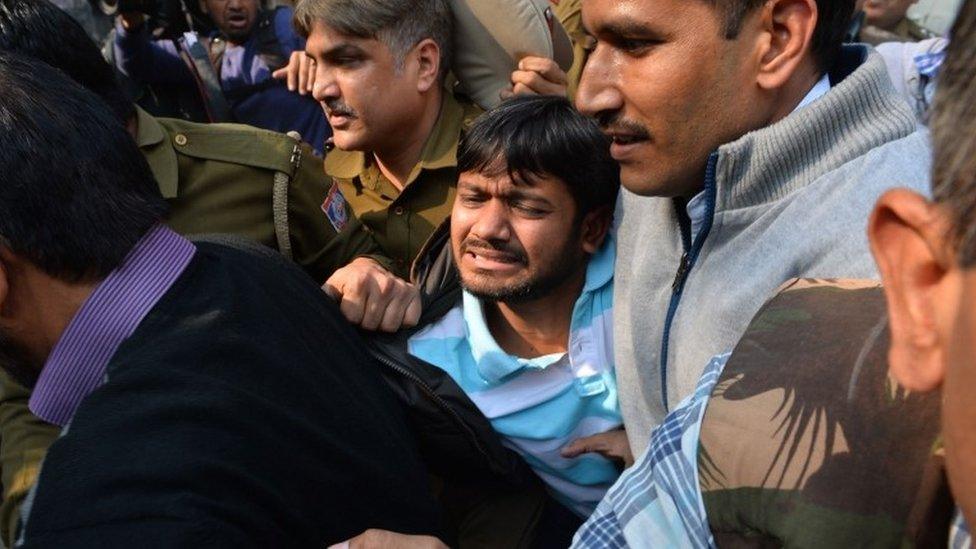
- Published24 February 2016
